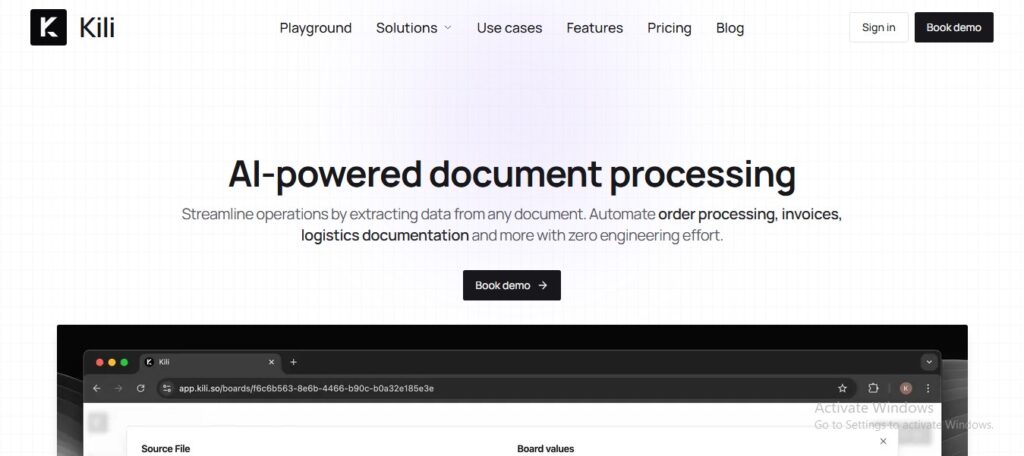Kili: Accelerate Your Data Labeling with AI and Collaboration
Kili is a powerful platform designed to accelerate and streamline the data labeling process for machine learning projects.
Description
Kili is a powerful platform designed to accelerate and streamline the data labeling process for machine learning projects. With its intuitive interface, collaborative tools, and AI-powered automation features, Kili helps teams create high-quality labeled datasets efficiently, leading to more accurate and reliable AI models.
Unique Features and Benefits:
- Intuitive Labeling Interface: Kili provides a user-friendly interface with various labeling tools for images, text, video, and more, making the labeling process efficient and enjoyable.
- AI-Assisted Labeling: Leverage AI models to pre-label data, suggest labels, and automate repetitive tasks, significantly reducing manual effort and accelerating the labeling process.
- Collaborative Workflow: Kili enables seamless collaboration among labeling teams with features like task assignment, quality control, and real-time communication.
- Data Quality Management: Ensure high-quality labeled data with integrated quality control tools, consensus mechanisms, and detailed labeling guidelines.
- Flexible Deployment: Deploy Kili on your own infrastructure or use their cloud-based solution, providing flexibility and control over your data.
How Kili Works:
- Import your data: Upload your raw data (images, text, videos, etc.) to the Kili platform.
- Define your labeling tasks: Create clear instructions and labeling guidelines for your team.
- Assign tasks and collaborate: Distribute labeling tasks among your team members and collaborate in real-time.
- Leverage AI assistance: Utilize AI models to pre-label data, suggest labels, and automate repetitive tasks.
- Ensure data quality: Implement quality control mechanisms and review labeled data to maintain accuracy.
- Export your labeled data: Download your labeled dataset in various formats ready for training your machine learning models.
Key Features and Functionalities:
- User-friendly labeling interface
- AI-assisted labeling and automation
- Collaborative workflow and task management
- Data quality control and consensus mechanisms
- Flexible deployment options (cloud or on-premise)
- Support for various data types (images, text, video, etc.)
- API access and integrations
Use Cases and Examples:
Use Cases:
- Labeling images for object detection and image classification
- Annotating text for sentiment analysis and natural language processing
- Labeling video data for activity recognition and video analysis
- Creating training datasets for machine learning models in various domains
Examples:
- A self-driving car company uses Kili to label images for training their object detection models.
- A healthcare company uses Kili to annotate medical images for disease diagnosis and research.
User Experience:
While Kili focuses on efficient and accurate data labeling, its design and features suggest a user experience that prioritizes:
- Productivity: AI-powered automation and intuitive tools streamline the labeling process.
- Collaboration: Collaborative features facilitate teamwork and ensure data quality.
- Flexibility: Kili adapts to various data types and project requirements.
Pricing and Plans:
Kili offers a free trial and flexible pricing plans based on usage and features.
Competitors:
- Labelbox
- Scale AI
- Amazon SageMaker Ground Truth
Unique Selling Points:
- AI-assisted labeling features that significantly accelerate the process
- Strong emphasis on collaboration and data quality management
- Flexible deployment options to cater to different needs
Last Words: Empower your machine learning projects with high-quality labeled data. Visit kili.so today and experience the efficiency and accuracy of Kili's data labeling platform.
